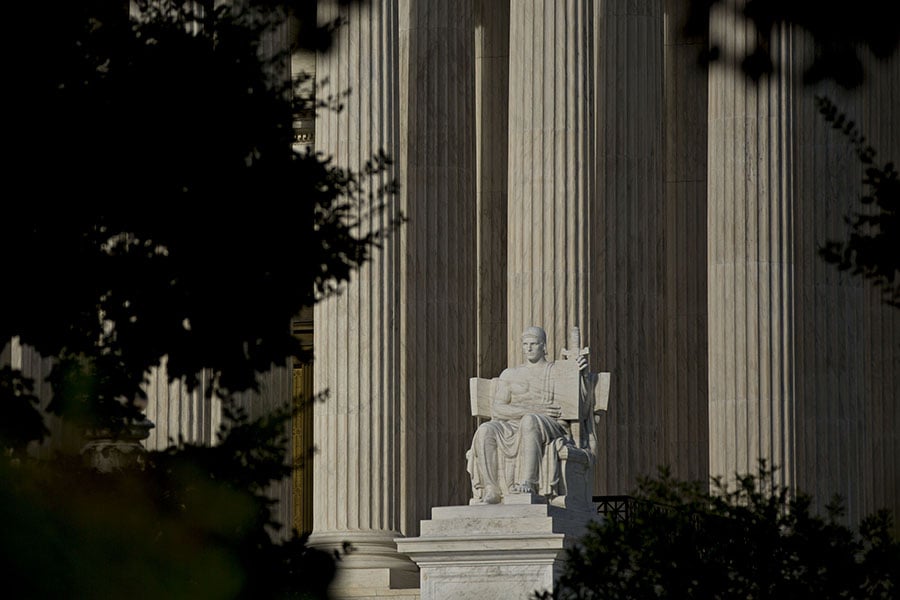

Opponents of California’s automatic IRA program are taking their fight to the Supreme Court.
Last week, the Howard Jarvis Taxpayers Association filed a petition asking the country’s highest court to review an appellate court decision that upheld California’s program, CalSavers.
The case has big implications for similar state programs that require small businesses with as few as five employees to provide retirement plans, unless they register for the state-sponsored option. States have developed such programs in recent years in response to the fact that many workers lack access to payroll-deducted retirement savings plans. Although there was talk during the Obama administration of a federal auto-IRA program, that initiative never made it off the ground. But Congress is now considering a bill that would establish such a system.
The state programs hit a snag in 2016, when Congress overrode a then-recent Department of Labor regulation that established a safe harbor for the auto IRAs under the Employee Retirement Income Security Act. However, several states moved forward with their programs despite that, and more have started work to develop their own.
The central questions in the conservative tax group’s case are whether California has the legal footing to require small businesses to participate or offer their own plans and whether CalSavers can be exempt from ERISA.
“The state disclaims any fiduciary responsibility for guarding these funds or paying them back to the employees who earned them. And, unless this Court reverses the Ninth Circuit’s declaration that CalSavers is exempt from ERISA, employees will have no federal cause of action if their funds are lost in the next California government scandal,” the petition from the tax group read. “Senate Bill 1234, the bill that created CalSavers, was passed in reliance upon an anticipated U.S. DOL regulation exempting state-run retirement savings plans from ERISA.”
CalSavers declined to comment, stating that it does not discuss pending litigation.
Prior to the appellate court decision, California had succeeded at the district court level, with the court granting a motion to dismiss.
The DOL had sided with Howard Jarvis in the case, filing a brief with the appellate court arguing that CalSavers was preempted by ERISA. At the beginning of the Biden administration, however, the DOL withdrew its support for the plaintiff.
In its petition, the tax group alludes to the potential consequences for other state initiatives.
“Other states are watching,” the group wrote. “Unless this court grants certiorari and reverses the Ninth Circuit, the precedent will be set and, before long, there will be a smorgasbord containing each state’s version of CalSavers, throwing into confusion whether employees’ earned wages will ever get returned if, for example, they move from one state to another, or if they temporarily work in a state but are not domiciled there, or if their employer filled out the wrong paperwork for that state 20 years ago, or if they never retire, or if the state’s program becomes insolvent, etc.”
In August, CalSavers surpassed $100 million in assets, with about 400,000 people enrolled in the program and 170,000 accounts being funded, the state announced at the time.
With mandatory retirement plan coverage affecting small businesses, state-run auto IRA programs are being viewed as a driver for more private-sector retirement plan business. Companies that have rolled out pooled employer plans, for example, have targeted employers in California, Illinois and Oregon and reportedly have been getting a large chunk of new business there.

Relationships are key to our business but advisors are often slow to engage in specific activities designed to foster them.

Whichever path you go down, act now while you're still in control.

Pro-bitcoin professionals, however, say the cryptocurrency has ushered in change.

“LPL has evolved significantly over the last decade and still wants to scale up,” says one industry executive.

Survey findings from the Nationwide Retirement Institute offers pearls of planning wisdom from 60- to 65-year-olds, as well as insights into concerns.
Streamline your outreach with Aidentified's AI-driven solutions
This season’s market volatility: Positioning for rate relief, income growth and the AI rebound
